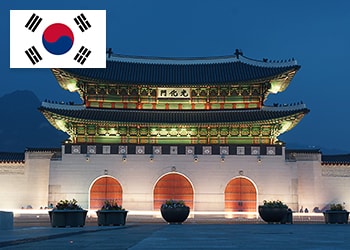Amendments of the trademark and design examination guidelines in South Korea

The Korean Intellectual Property Office (KIPO) amended the trademark and design examination guidelines, which came into force on January 1, 2018. The main changes are listed below.
The KIPO has changed the examination procedure for applications containing similar trademarks. In case the registration fee for the prior-filed application is not duly paid, this application is considered abandoned without a restoration possibility during the 1 year grace period as was stipulated before. Therefore, a later-filed application is to be examined without any delays and without being rejected due to any similarity to a prior application.
In addition, KIPO reclassified some goods into other classes, for example, "health functional foods" that were previously grouped under different classes depending on the ingredients, are now classified under class 5.
Furthermore, it has also become easier to obtain protection for a 3D trademark, as well as a trademark containing a geographical indication and the term “university”.
Under the updated design examination guidelines now it is possible to facilitate registration of a partial design application consisting of several physically separated parts, that constitute an integral creative unit or have the same or interrelated functions. Whereas previously, such applications were often considered as failing to comply with the requirement that one design application should refer to one design only.
Besides, the amended guidelines stipulate that not only claimed, but also unclaimed parts and drawings of a partial design are to be taken into consideration when determining whether a design can be registered. This means that even if there is a violation in unclaimed parts of the application, the whole partial design will not be registered.
Currently, design applicants may request an accelerated examination (2-4 months compared to the usual 7-9 months) for applications related to the artificial intelligence and Internet of Things, that are deemed to be of primary importance as such applications are connected to the fourth industrial revolution.
Consequently, the changes introduced by the KIPO into the examination guidelines place the IP system in South Korea closer to the international practice by means of facilitating and clarifying the issues that may have been previously challenging for the applicants.